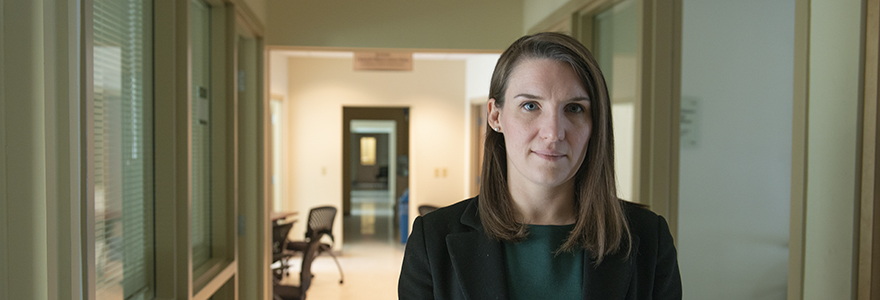Feature: Online course on mindful social innovation aims to build pandemic resilience

By Crystal Mackay, MA’05
In the Democratic Republic of the Congo, a country burdened by years of civil unrest and poverty, only a dozen psychiatrists currently serve the entire population of more than 90 million. On top of its complex issues, the country is still recovering from the mental health fallouts of Ebola, and now is dealing with those stemming from the ongoing COVID-19 pandemic.
“For a country like the Democratic Republic of the Congo, the coronavirus pandemic is an added layer of complexity and a layer of need,” said Dr. Arlene MacDougall, Assistant Professor of Psychiatry at Schulich School of Medicine & Dentistry. “With severely limited mental health resources, there needs to be focus on innovative, systems-level change.”
To help educate and inspire the leaders of tomorrow to become what she calls ‘system transformers,’ Dr. MacDougall and her team at the Global MINDS Collective, Raksha Sule, BMSc’15, and Morgan Rosenberg, HBA’15, along with a community partner in the DRC, have developed a six-week online course on mindful social innovation for global mental health.
The course aims to reach participants from around the globe and attract an interdisciplinary range of senior undergraduate and professional students, graduate-level students, postdoctoral fellows and people already working in the fields of global health and development, public health or mental health.
Participants will learn about global mental health burdens, systems leadership and mindful social innovation. They will also work in teams to develop and pitch ideas to community partner coaches in the DRC. The partner, Hope and Health Vision, is a charity providing mental health education and psychosocial supports for the most marginalized populations, including children, youth and women who have experienced conflict-related violence. The charity and its local stakeholders will help participants understand the context and particular challenges to help them create the best tailored solutions.
The course also involves learning about and practising mindfulness with a focus on the participants’ own mental health and wellbeing. “There is a greater need right now for people to be part of a community of practice trying to solve these complex mental health systems issues globally," Dr. MacDougall said. "But we also want them to have the tools themselves to manage their own mental health."
The course is part of a newly incorporated not-for-profit, the Global MINDS Collective, which grew out of Dr. MacDougall’s work at Schulich Medicine & Dentistry with the Global MINDS Fellowship Program and the graduate seminar course of the Master of Management in Applied Sciences in Global Health Systems.
While the course is focused on the DRC, participants will gain tools and have experiences that will apply to mental health system challenges in many other contexts, Dr. MacDougall said.
“As part of our sustainability and scalability plan, we incorporated as a not-for-profit so we could bring this innovative curriculum to many other partners, organizations and individuals around the globe," Dr. MacDougall said.
The course begins in January, 2021, and registration is open now. For more information: www.globalmindscollective.ca








